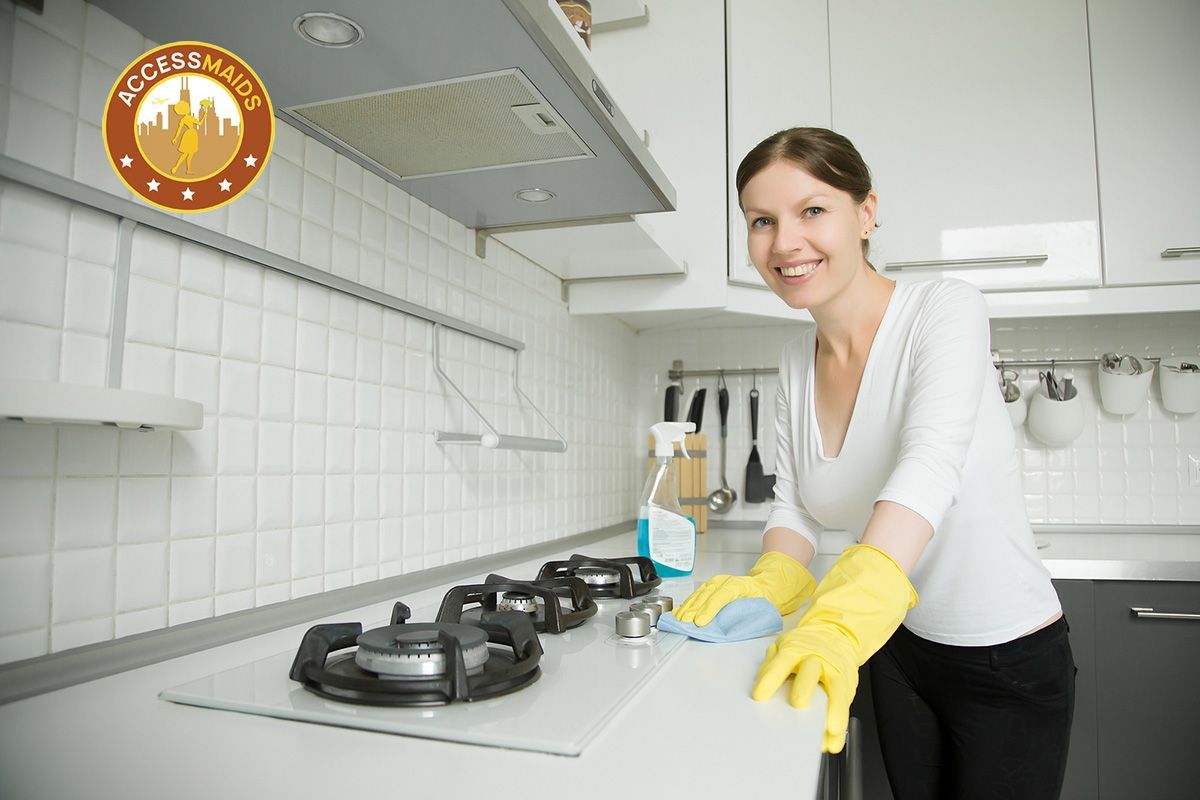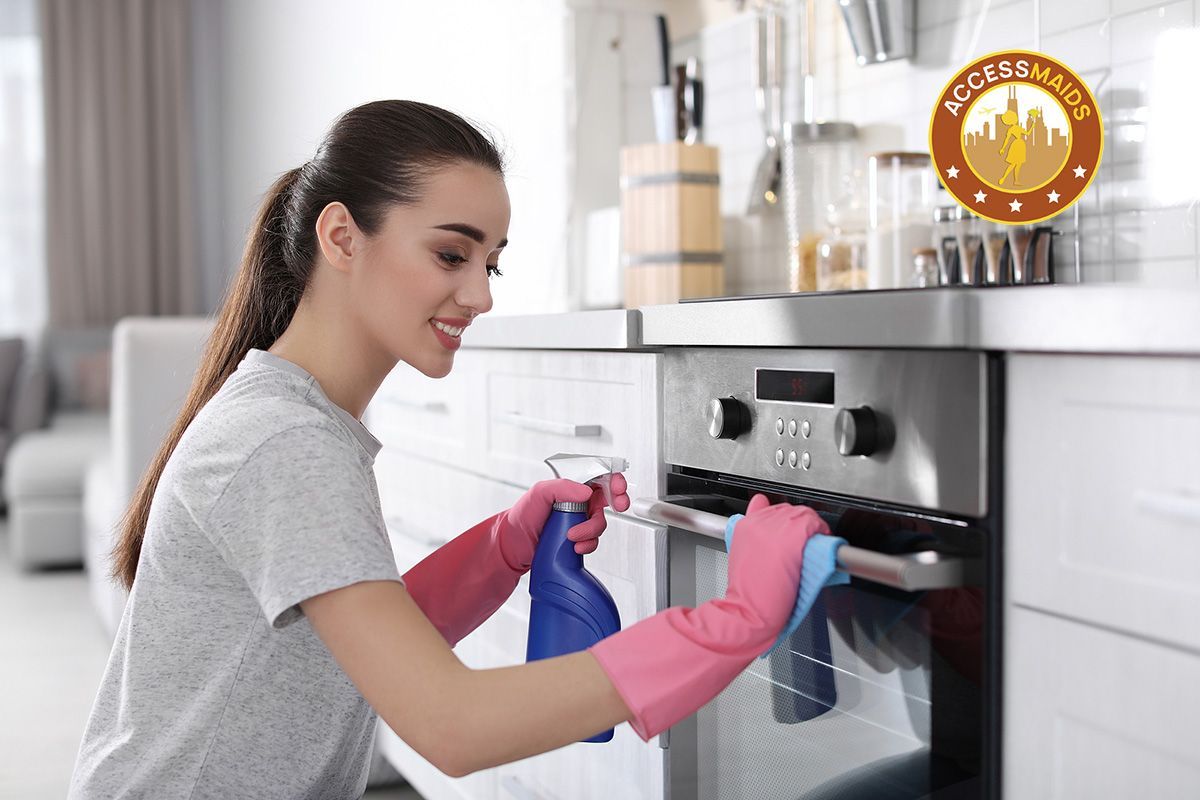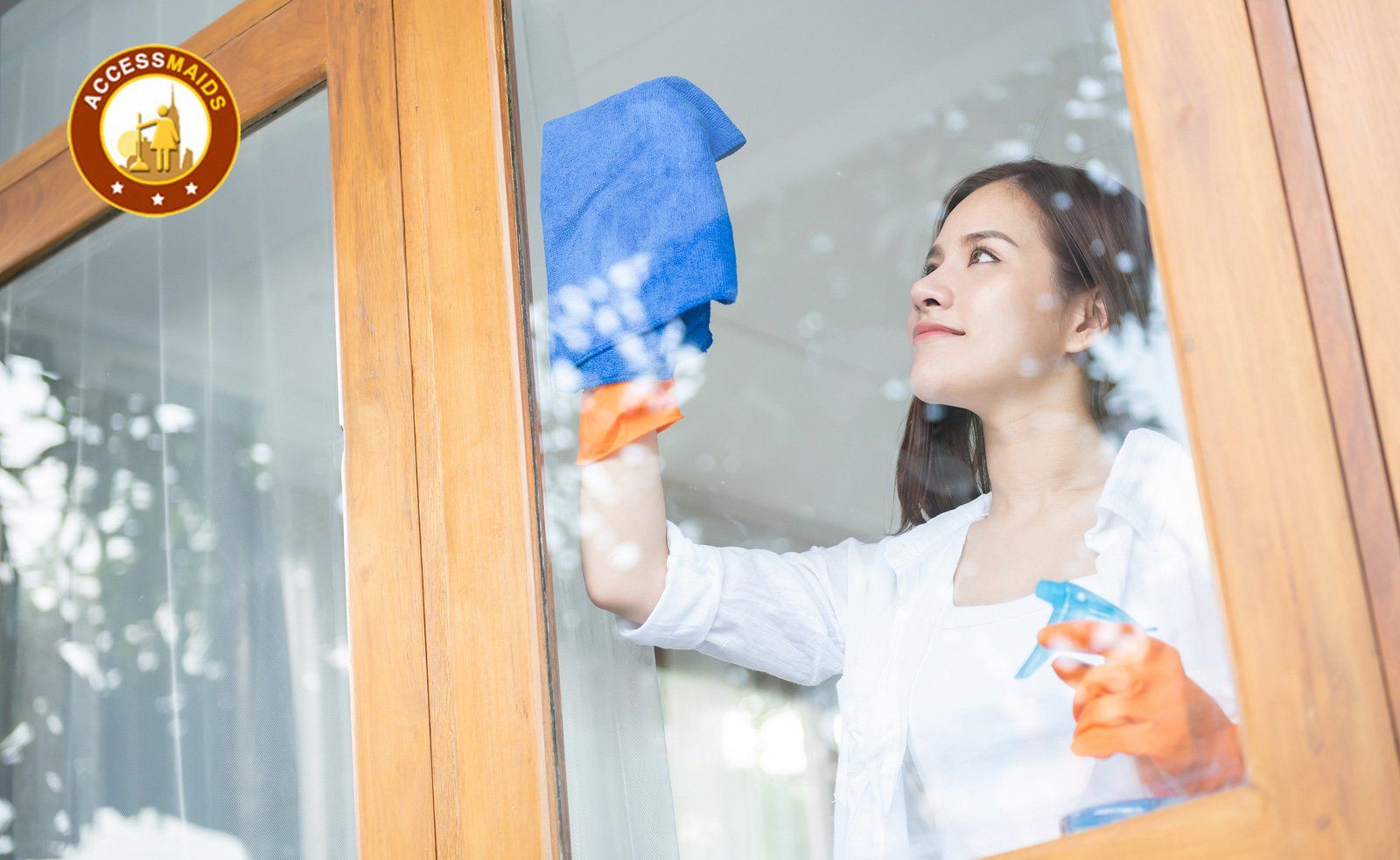DEEP CLEANING
You may be able to clean the obvious stuff in your home, but what about that hidden, hard-to-reach dirt and dust that can accumulate over time?
Well, AccessMaids’ expert cleaning professionals are here to help. They will thoroughly remove any hidden dirt based on your specific needs, ensuring the elimination of harmful buildup. With our deep cleaning services, your house will be in top shape and ready for the next season.
Why is Deep Cleaning Important?
Firstly, it improves the air quality in your home. Hidden dirt and dust can cause allergies, respiratory problems, and other health issues.
Secondly, deep cleaning helps to eliminate harmful bacteria and germs that can cause infections and diseases.
Lastly, a clean home is a comfortable and welcoming space for you and your family.
What Does Deep Cleaning Involve?
Deep cleaning involves cleaning every part of your home, including the hard-to-reach areas. The process may vary depending on the cleaning company you hire, but it generally involves the following steps:
- Dusting: Dusting involves cleaning all surfaces, including furniture, shelves, and baseboards.
- Vacuuming: Vacuuming includes cleaning carpets and rugs. Vacuuming also helps to remove dust from hard-to-reach areas.
- Mopping: Mopping involves cleaning the floors, including tiles and hardwood floors. Mopping also helps to remove stubborn stains and dirt from the floors.
- Cleaning Appliances: Deep cleaning includes cleaning appliances, such as ovens, refrigerators, and microwaves. Cleaning these appliances improves their performance and lifespan.
- Cleaning Bathrooms: Bathrooms are often the most neglected areas when it comes to cleaning. Deep cleaning involves cleaning the toilets, sinks, showers, tubs and cleaning the grout and tiles.
- Cleaning the Kitchen: The kitchen is another area that requires deep cleaning. This involves cleaning the cabinets, countertops, and appliances.
Why Hire a Professional Cleaning Company for Deep Cleaning?
Deep cleaning requires specialized skills, knowledge, and equipment. Hiring a professional cleaning company ensures that your home is cleaned thoroughly and efficiently. AccessMaids has the necessary expertise and experience to clean every part of your home, including the hard-to-reach areas. They also use eco-friendly and safe cleaning products that are effective in removing dirt and grime.
In conclusion, deep cleaning is an essential process that helps to improve the air quality, eliminate harmful bacteria and germs, and create a comfortable living space. Hiring a professional cleaning company for deep cleaning ensures that your home is cleaned thoroughly and efficiently. With their expertise and experience, you can be assured of a clean and healthy home.
- Add windows washing, oven interior cleaning to 43 basic tasks
- Free supplies and equipment every visit
- 24/7 online account access (setup, cancel reschedule, customize appointments instantly online- no phone calls required)
- Prompt telephone or email response to your needs including priority scheduling for emergency cleaning
- Free rooms freshener
- Free carpet deodorizing
- No cancellation guarantee
- Free telephone, email or text message reminders
- Quality monitoring
Checklist
Kitchen:
- Scrub and sanitize sinks
- Clean countertops and stovetops
- Clean exterior surfaces of all major appliances (oven, refrigerator, and dishwasher)
- Thoroughly clean the interior and exterior of the microwave
- Wipe down cabinet doors
- Wipe down tables and chairs
- Clean window sills, tables, and chairs
- Empty all trash bins
- Wipe down small appliances (e.g., toaster, coffee maker)
- Vacuum and wash floors
- Wipe down backsplashes
- Dust and clean light fixtures
Bathrooms:
- Scrub and sanitize sinks, faucets, and counters
- Clean and disinfect countertops
- Thoroughly clean and disinfect the toilet (inside and out)
- Scrub and disinfect the shower, tub, and tiles
- Clean and polish mirrors and glass surfaces
- Wipe down cabinet doors exterior and handles
- Clean exterior surfaces of bathroom fixtures (e.g., towel racks, toilet paper holders)
- Clean and sanitize soap dishes and dispensers
- Wipe down bathroom walls (if necessary) and light switches
- Clean and dust window sills, ledges, and blinds
- Sweep, vacuum, and mop floors
- Wipe down backsplashes and any tiled areas
- Empty the trash bins
Bedrooms:
- Make beds neatly and change linens (if provided)
- Dust all surfaces, including furniture and shelves
- Clean and polish mirrors
- Light tidying and straightening of items (e.g., pillows, blankets)
- Wipe down nightstands, dressers, and other surfaces
- Dust and clean lamps
- Clean window sills
- Vacuum and mop floors, paying special attention to edges and corners
- Vacuum under the bed and furniture (if reachable)
- Empty the trash bins
Other Living Areas (including hallways and stairs):
- Dust all surfaces, including furniture and shelves
- Clean and polish glass tables and other glass surfaces
- Vacuum sofas, chairs (including under cushions)
- Lightly straighten and organize items for a tidy appearance
- Clean and dust window sills
- Fluff and arrange cushions and pillows neatly
- Dust stair railings, banisters, and handrails
- Vacuum stairs and hallways
- Vacuum and mop floors, paying extra attention to corners and edges
Windows:
- Window above the kitchen sink washed
- Patio door windows washed
- Interior windows cleaned (if requested)
- Window tracks vacuumed and wiped
Extras:
- Refrigerator interior
- Oven Interior
- Windows interior
- Dishes
- Baseboards (floorboards)
- Blinds dusting
- Dishes handwashing
- Ceiling fans
- Cobwebs removal
- Doors and light switches cleaning
- Inside empty cabinets
- Laundry services
- Washer and dryer cleaning
- Balcony or patio
- Carpet shampooing
- Carpet deodorizing
- Vapor (steam) cleaning of bathrooms and kitchen
- Bed linens change
- Building commong areas (front)
- Antimicrobial treatment
- Pet hair clean-up
- Plants watering
- Rooms freshener



